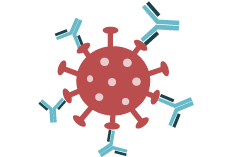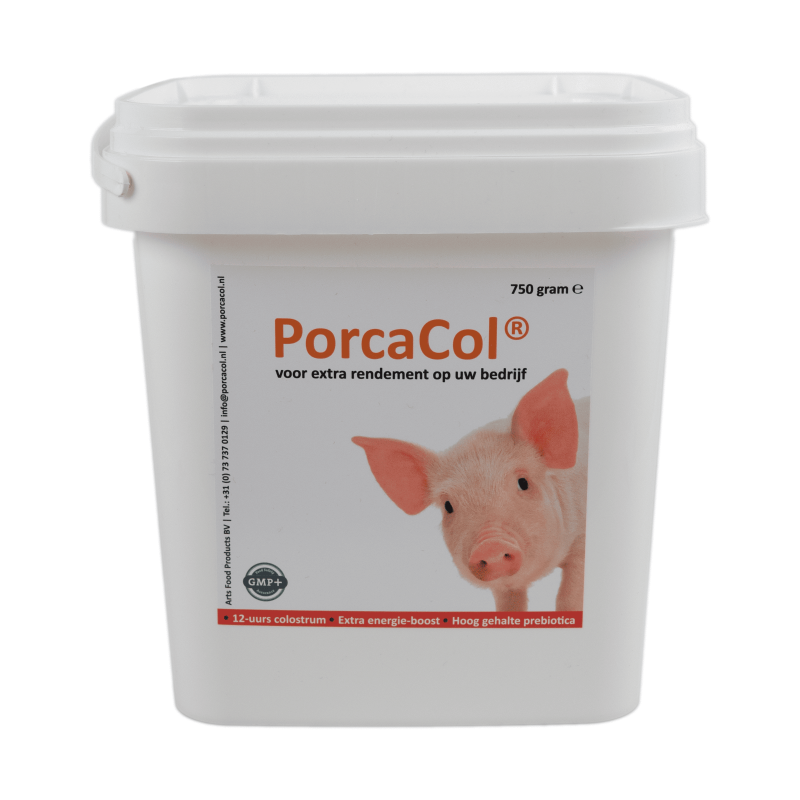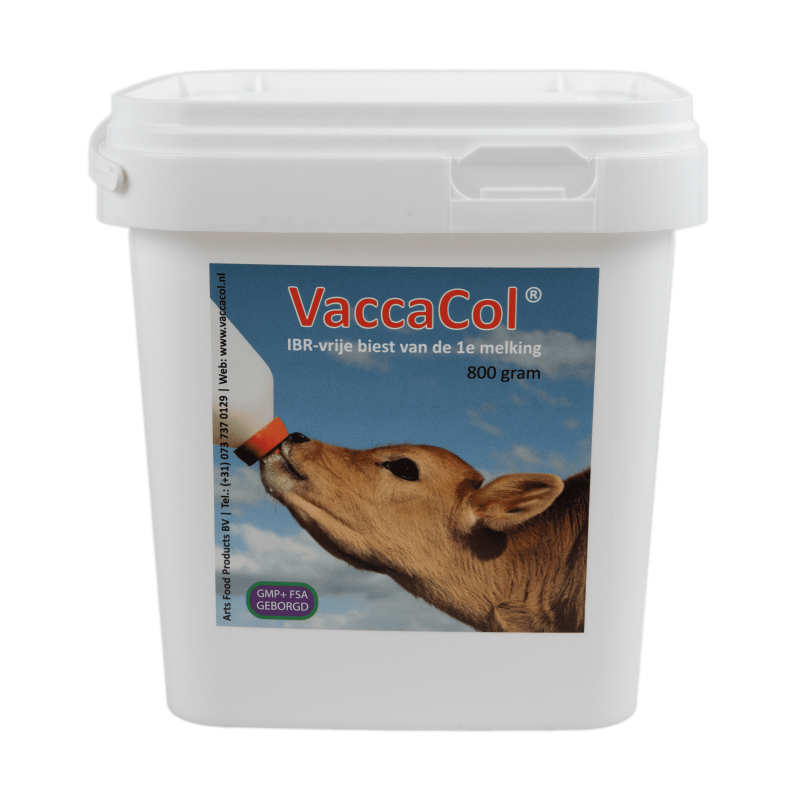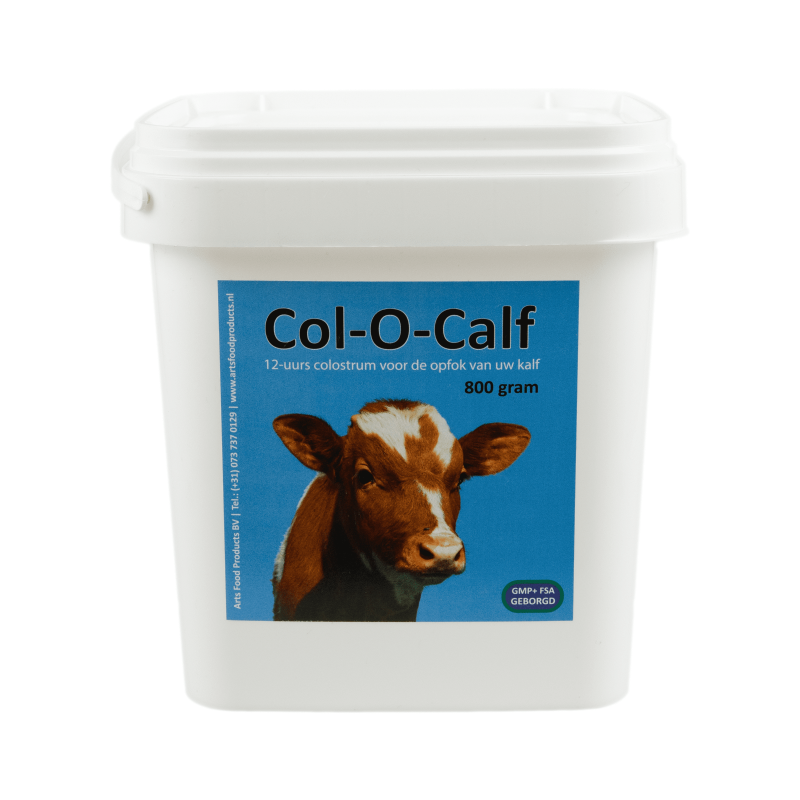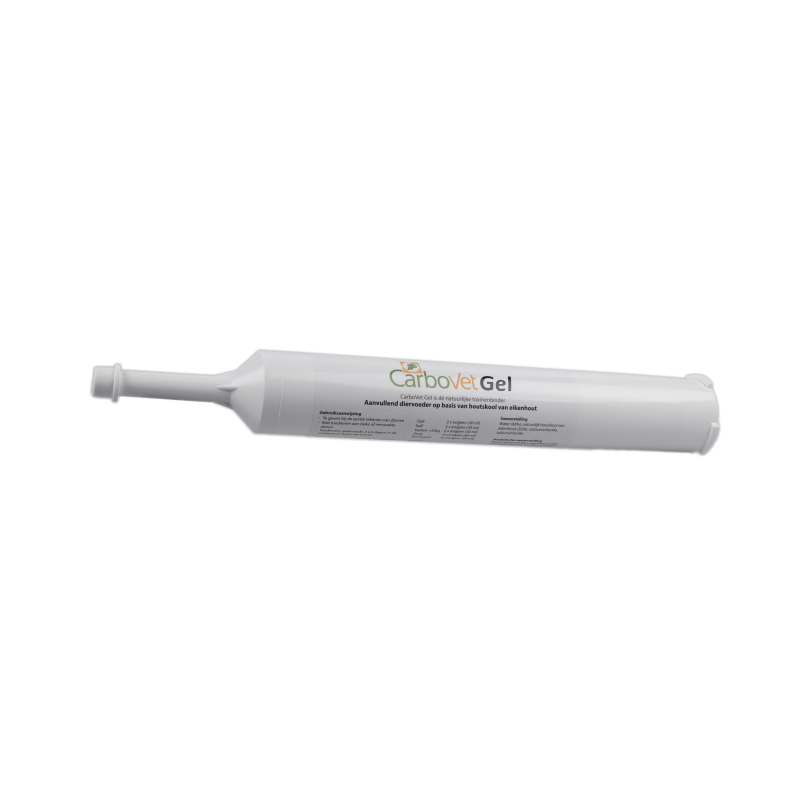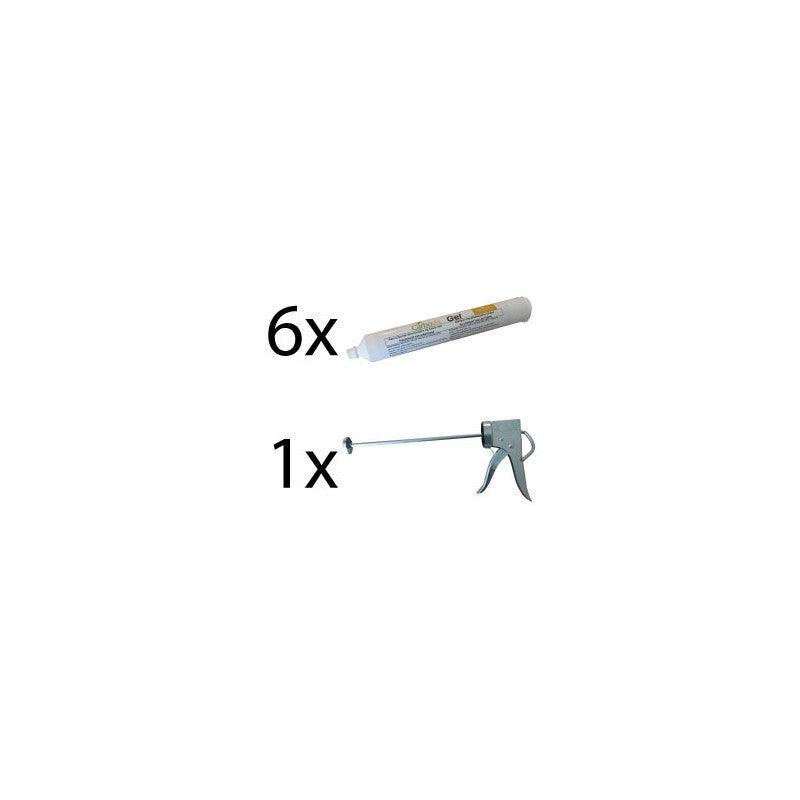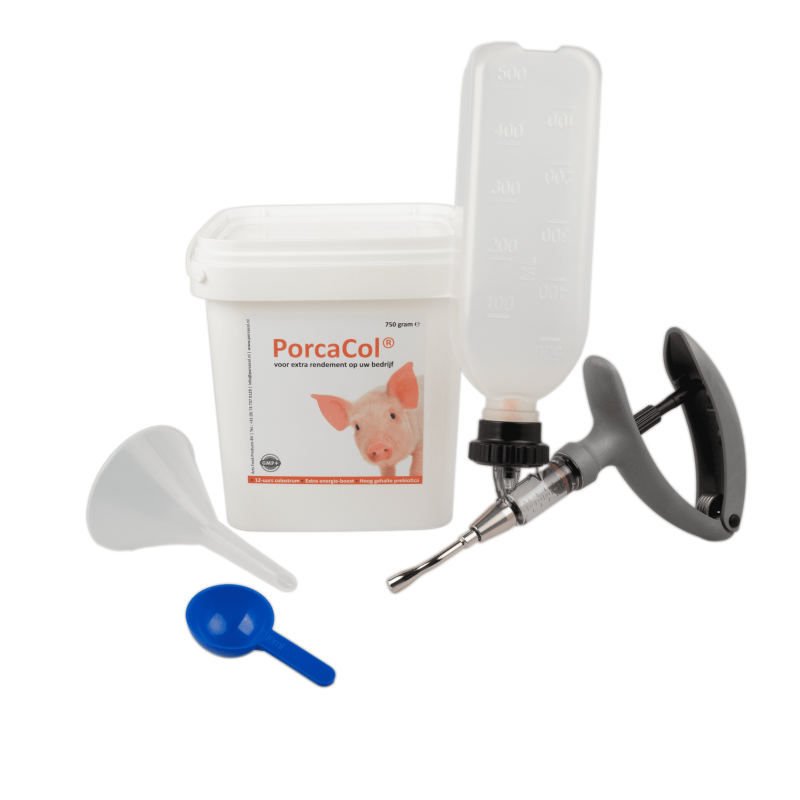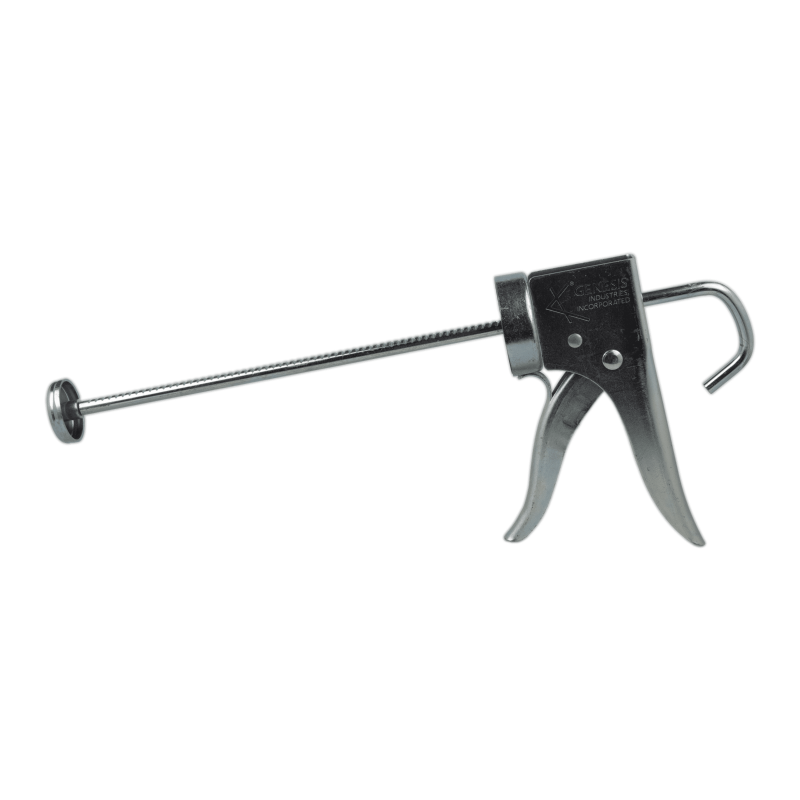Immunoglobulins, or antibodies, are vital for a newborn's survival. Antibodies in the colostrum are transported to the abomasum and from the abomasum to the intestine. Once in the intestine, antibodies pass through the mucous membrane layer and move through the intestinal wall into the bloodstream. Once in the blood, the antibodies spread throughout the body.
Antibodies bind to pathogens. Once pathogens are bound by antibodies, they become harmless. The immune system then eliminates these bound pathogens.
First-milking colostrum is the only source of antibodies for goat kids, lambs, calves, piglets, and alpaca foals. By providing sufficient colostrum from the first milking, an offspring receives enough antibodies to build resistance during the first phase of life (passive immunity). Afterward, the animal produces its antibodies (active immunity) and can independently defend itself against pathogens.
Raw colostrum from the birth mother should be the first choice. However, there are reasons to consider a colostrum replacer:
Disease-free
Newborn animals can contract various diseases (including CAE in lambs) through raw mother's colostrum. Also, there's a risk of contamination during milking, which can cause the transmission of E. coli, paratuberculosis, and other pathogens. This can lead, for instance, to birth diarrhea.
The effects of CAE, in particular, are very detrimental to the animal and thus to your business and should be prevented. Pasteurizing mother's colostrum is not recommended, as many heat-sensitive substances in colostrum cannot withstand high temperatures.
Quality
Young mother animals often test negative for CAE and paratuberculosis. However, the quality of the colostrum, measured in antibodies per liter, varies greatly and often falls below the desired standard. Older animals, on the other hand, often have a higher antibody content per liter. Yet, the risk of disease transmission with older animals is typically higher.
To ensure a consistent number of antibodies per liter, you can choose to use a colostrum replacer. CapraCol is a colostrum replacer for goat kids, lambs, and alpaca foals. It is made from colostrum of the first milking. This is crucial because colostrum from a subsequent milking contains 60 - 80% fewer antibodies.
Labor
Our colostrum replacers (CapraCol®, VaccaCol®, Col-O-Calf, and PorcaCol®) dissolve quickly, do not foam, making them user-friendly. During busy times, such as birth peaks, less labor and quick availability are a boon.
